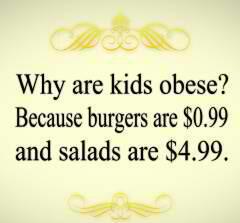I can see where some of today’s readers may feel that this book is boring, lacking real page-turning excitement, and perhaps even call it a navel-gazer. It is, despite the potential for a collision course set by the narrator in the first couple pages, indeed a subtle character analysis. And, while the book is spent in background information that is meant to build up to the present scenario and give it its impact, the information is mainly the narrator’s opinions on his family interaction and how he expects the characters to react to a family crisis.
The basic premise is a scenario that begins with phone calls from the narrator, Phillip’s, two older sisters, quite upset that their widowed wealthy father is about to remarry a younger woman. Phillip’s reflections on his relationship with his father, a rather distant one that he’s escaped to do his own thing in New York City, and the family dynamics between the two spinster sisters and their father, who seem to manipulate the old man in a passive-aggressive resentment.
Taylor lays out an upheaval of the family when the girls were young women and Phillip was an adolescent, where a rift between their father, a lawyer, and his good friend and client, Mr. Lewis Shackleford, causes the family great personal loss and forces them to move from Nashville to Memphis. Taylor does not explain exactly what happened, and I tend to feel that we, like the children, are not supposed to “discuss” it.
Phillip has also been in touch with his childhood friend, Alex Mercer, and it’s another curious relationship as Alex bonded closer with Phillip’s father even as a child, and continued a fairly close communication over the decades.
What all this builds up to, via Phillip’s thoughts as he prepares to answer his sisters’ “summons to Memphis” to supposedly prevent the marriage of his father, would, one might think, be the major dramatic confrontation of the story. Taylor, however, handles it quickly, follows through a time beyond it, and focuses instead on another relationship, that of Phillip and his live-in girlfriend, Holly Kaplan. Even another summons to Memphis brought about by another near-crisis situation (as estimated by his two sisters), turns into more of a settling in for Phillip, a coming-to-terms of his past, his present, and his future.
Taylor wraps the drama up fairly quickly at the end, really, downplaying any expected conflict and focusing instead on how the conflicts are handled by the characters, and how changes, particularly in Phillip and in his girlfriend, Holly, are slowly brought about by events and the distance of time.
It’s an exquisite book on family dynamics and how one is influenced through a lifetime by the past, and how one’s perceptions of the past can be changed by changing one’s own values and priorities. Few writers could bring this slowly told tale along with such depth and subtlety. Taylor skillfully has done so.


 The Lost Children: A Charity Anthology
The Lost Children: A Charity Anthology